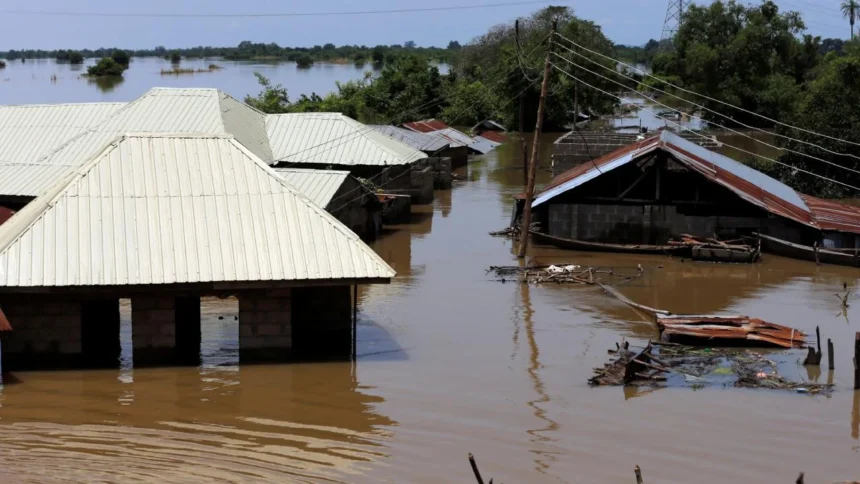Olusegun Ariyo
Some residents and environmental experts have raised an alarm over persistent flooding along the Lekki–Ajah corridor in Lagos, blaming land reclamation, ocean surge, and unregulated development.
In separate interviews, residents recounted distressing experiences of flash floods disrupting life, damaging property, and causing panic in coastal communities.
Mr Ololade Ibrahim, a Lekki inhabitant, said rainfall now triggers fear among residents because of the intensity and duration of flash floods.
“Each time it rains, anxiety grips everyone. The roads become impassable, vehicles get trapped, and homes are threatened,” he said.
Similarly, Mrs Adekeye Maria, a Lekki Phase 1 resident, described the panic caused by recent heavy rainfall.
“During the last downpour, I couldn’t reach my son’s school. Some parents accessed theirs only around midnight when the flood subsided,” she said.
She added that traffic gridlock from the flood extended to Victoria Island.
Another resident, Mr Marvel Adeniran, blamed reckless developers for worsening the flooding.
“Land reclamation and unchecked construction are destroying natural drainage paths. Most estates are flooded after every rainfall, making life unbearable,” he said.
“This practice harms marine resources and increases flooding by blocking natural drainages. Reclaimed lands are unstable and costlier to maintain,” he said.
.
In 2024, the Director-General of the Nigerian Conservation Foundation, Dr Joseph Onoja, warned that the Lekki–Epe corridor could be washed away without urgent action.
He said about 128 metres of land were lost to ocean encroachment between 2018 and 2022.
“Our drone images show steady inland ocean advance. If nothing changes, the Lekki–Epe expressway may be submerged within years,” Onoja warned.
He urged immediate government intervention to protect communities and key infrastructure from further destruction.
Responding to growing concerns, the Lagos State Government has suspended all land reclamation activities pending environmental review.
Commissioner for Environment and Water Resources, Mr Tokunbo Wahab, confirmed the suspension on Sept. 18, citing unauthorised reclamation on wetlands, floodplains, and lagoons.
Affected areas include Parkview, Banana Island, Osborne, Ikoyi, Victoria Island Extension, Lekki, Ajah, Oworonshoki, and parts of Ikorodu.
“Lagos’ low-lying terrain cannot withstand indiscriminate reclamation without grave consequences.
“All ongoing projects, with or without EIA approvals, are suspended pending verification. Defaulters face sanctions, site closure, and possible arrest,” he said.
He added that the ministry would remove illegal fills, reopen blocked waterways, and prosecute environmental offenders.
“Enough is enough. We must act decisively to protect the lives and livelihoods of coastal communities,” Wahab declared.
Experts warned that without urgent, coordinated action, Lagos risks irreversible environmental and humanitarian crises.







